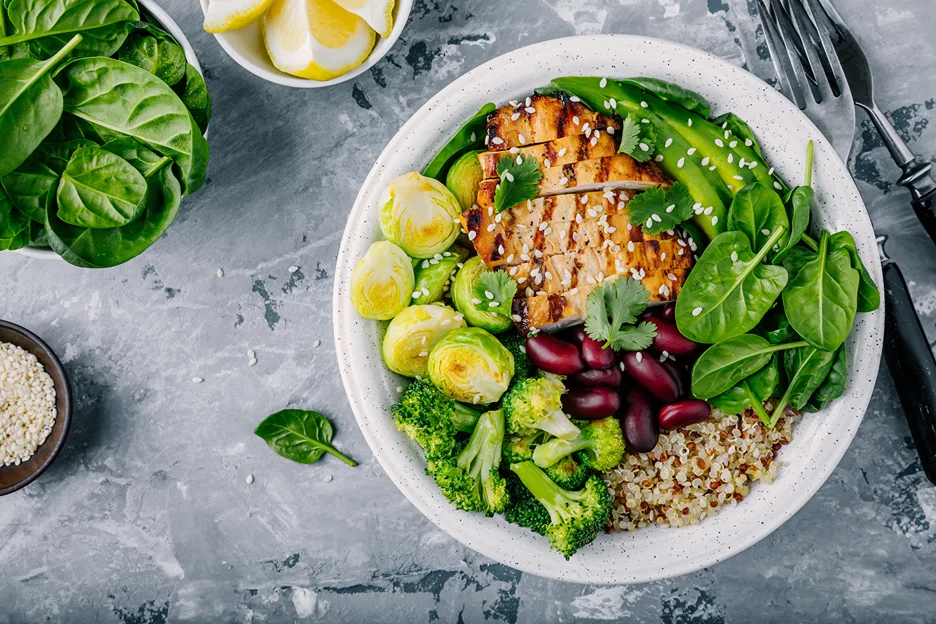Understanding the Benefits and Risks for Nursing Mothers and Their Infants
Nursing moms want the best for them and their babies. Digestive issues like excess gas, colic, constipation or diarrhea can make breastfeeding challenging and uncomfortable for both.
Histamine intolerance, where the body produces too much of the hormone histamine after eating foods like dairy, nuts or aged cheeses, is one possible explanation for digestive discomfort. Having low levels of the enzyme diamine oxidase or DAO, which helps break down excess histamine, can lead to bothersome symptoms of histamine intolerance.
Therefore, DAO enzyme supplements may help by improving your histamine metabolism and digestion. However, as with any supplement, it’s important to make sure DAO enzyme is considered safe and appropriate for nursing women and breast milk.
While DAO shows promise for easing symptoms, you need to understand its role, how much activity may be needed, and any effects it could have on you and your baby.
The role of DAO enzyme is to help regulate the amount of active histamine in your body by breaking it down. Higher activity levels of DAO lead to less histamine release, reducing uncomfortable digestive symptoms.
For nursing moms with histamine intolerance, DAO supplements could help restore balance by addressing lower amounts of this important enzyme. At the same time, any DAO passed into breast milk needs to be screened for safety and suitability for infants. Only then can you feel confident that DAO enzymes may benefit you both.
Common Symptoms of Histamine Intolerance
Some signs of histamine intolerance include abdominal pain, itchy or hives-like skin, nasal congestion, and gastrointestinal symptoms such as gas, bloating, constipation, diarrhea or nausea. Digestive issues tend to be the most bothersome and can make it painful or difficult to eat certain foods. Flare-ups often occur within a few hours after consuming histamine-releasing foods.
DAO Enzyme Supplements and Nursing
Taking DAO enzyme supplements as a nursing mom could help alleviate uncomfortable symptoms for both you and your baby by improving digestion. Enzymes are considered safe for breastfeeding women since they are proteins and any amount transferred to breast milk would be insignificant.
However, you still want to consult your healthcare provider before adding any supplements to ensure there are no concerning interactions or side effects, especially for your infant.
While DAO shows promise as an easy, natural remedy, it is not regulated like medication. Reputable brands will conduct testing to ensure quality, potency, purity and safety, but only for general consumption.
As with anything you ingest, extra precautions should be taken when nursing. Your doctor can review the specific product details, dosage, and any available research on DAO for breastfeeding moms and babies to determine if it is appropriate and advisable in your situation.
The potential benefits of eased digestion and enhanced comfort for you and your baby are appealing, but should not come at the cost of health or well-being. When in doubt, it is best to talk to your healthcare provider about whether DAO supplements make sense during this sensitive time.
Activity Levels of DAO Enzyme in Breast Milk
DAO enzyme is naturally present in breast milk, though amounts can vary between women. For nursing moms with lower DAO activity, supplements may help boost levels passed to the infant which aids in digesting excess histamine from the mother’s diet.
However, the effects of higher DAO exposure on a baby’s developing immune system are not fully known. It is best for DAO intake to remain within the normal range for breast milk and supplements only used under medical guidance.
Diet and Lifestyle Modifications for Histamine Intolerance Management

The most natural approach to managing histamine intolerance is through diet and lifestyle changes. Some recommendations include:
A low-histamine diet: Reduce intake of histamine-releasing foods like aged cheeses, nuts, smoked/cured meats, pickled/fermented foods, dried fruits, chocolate. Eat more fresh fruits and vegetables.
Choose fresh, high-quality whole foods: Fresh produce is less likely to be high in histamines. Opt for fresh vegetables, grass-fed meats, free-range eggs, raw dairy, fresh juices.
Avoid food intolerances: Identify other potential triggers like gluten, soy or dairy and cut them out. A histamine-free or reduced diet can help determine if symptoms improve.
Stay hydrated: Drink plenty of water which helps flush excess histamines from the body. Herbal tea, bone broth or coconut water also provide hydration with added nutrition.
Manage stress: Too much cortisol, the stress hormone, may increase histamine levels. Practice self-care through exercise, sleep, meditation, yoga or deep breathing.
Consider supplements: Certain nutrients like vitamin C, quercetin, spirulina, butterbur and magnesium may help improve histamine metabolism and reduce levels. But always talk to your doctor first, especially if breastfeeding.
Elimination Diet and Monitoring Symptoms
An elimination diet involves removing suspected trigger foods from your diet for several weeks to see if symptoms improve. Common foods eliminated for histamine intolerance include aged cheeses, nuts, cured meats, pickled/fermented foods, chocolate, gluten, dairy, soy, etc.
Keeping a journal or food diary while on the elimination diet can help determine any allergic reactions or patterns from eating certain foods. Note gastrointestinal issues, skin problems, fatigue or other symptoms that may indicate a histamine response. Reintroducing foods one by one after symptoms resolve can then identify specific triggers for you.
Challenges in Diagnosing Histamine Intolerance
Diagnosing histamine intolerance is challenging due to lack of reproducible diagnostic tests. Some options include:
Observational studies and diet changes: The most common approach but subjective and time-consuming. Elimination diet helps determine if symptoms improve with reduced histamines but does not prove intolerance.
Basophil activation test (BAT): Measures histamine release from white blood cells but can give false positives/negatives and lacks standardization. Not widely available.
DAO activity or urine histamine tests: Can indicate if too much or too little histamine metabolism but also problematic to interpret and inconclusive on their own.
Provocation testing: Administering histamine orally (usually as tablets) to provoke symptoms, then higher challenges to induce reactions. However, effects tend to vary, symptoms are not always reproducible, and testing has risks. Considered research-oriented.
Microbial testing: Some claim certain SIBO, candida or gut bacteria imbalances can increase histamines, but lacking scientific validity and not medically recommended.
Conclusion
In summary, DAO enzyme supplements may help ease digestion and improve comfort during nursing for both mothers and babies dealing with histamine intolerance. However, as with any supplement, it is critical to talk to your healthcare provider before taking DAO to make sure it is safe and appropriate given your full clinical history.
While DAO is a natural protein enzyme and considered safe for breastfeeding in general, effects on an infant’s developing system are not fully known. There are also few studies on DAO for histamine intolerance specifically, and no regulation or oversight for supplements like there are for medications. Your doctor can review the details of any product, dosage recommendations and research to determine if the benefits outweigh potential risks for your unique situation.
Managing histamine intolerance during nursing does not have to be complicated, but should always be done under medical guidance. Other good options include an elimination diet, lifestyle changes, and nutritional support. Patience and persistence are also key to gaining control of symptoms and finding the right approach for you and your baby.
The most important things are providing the nutrition your infant needs, maintaining a comfortable and positive breastfeeding experience, and keeping your health and well-being as the top priority.
No supplement or diet change is worth jeopardizing, so work closely with your doctor every step of the way. With time and the right strategies, histamine intolerance can become quite manageable during nursing for most moms and babies.
Visit SeeBeyond Shop
Looking for additional support in managing histamine intolerance and optimizing your overall health? Check out our med spa-affiliated SeeBeyond Shop for a carefully curated selection of supplements to complement your wellness journey. Browse our range of high-quality products, and remember to consult with your healthcare provider before starting any new supplement regimen.
Discover the benefits of our expertly chosen supplements and elevate your well-being today! Visit SeeBeyond Shop.
